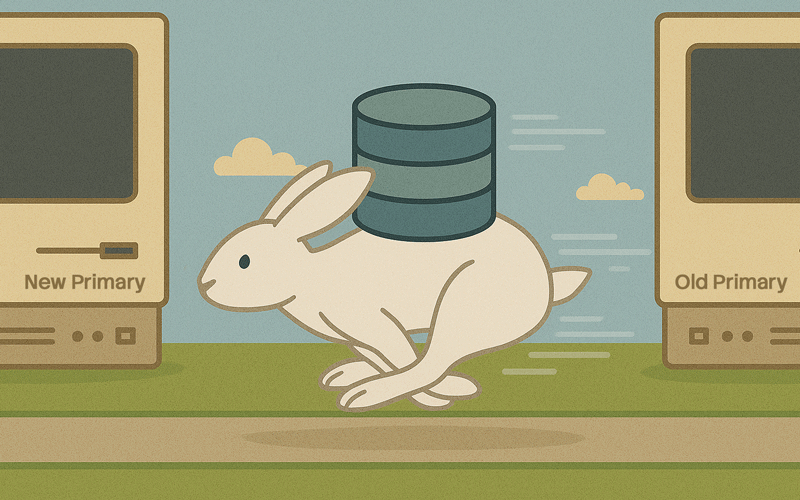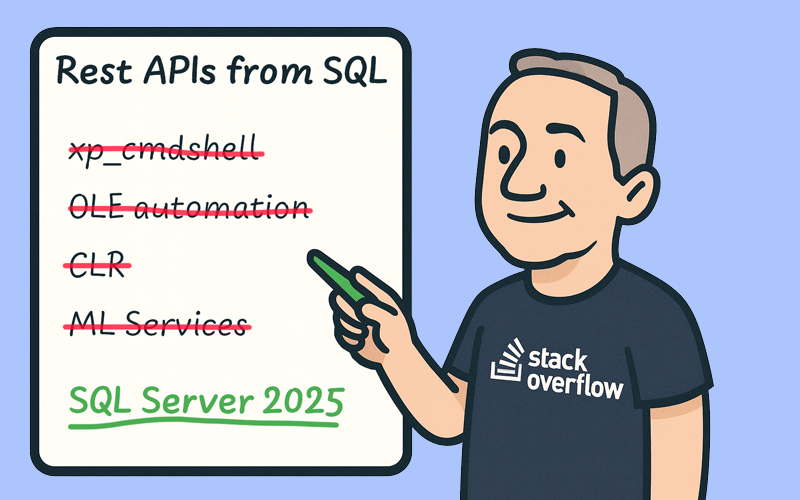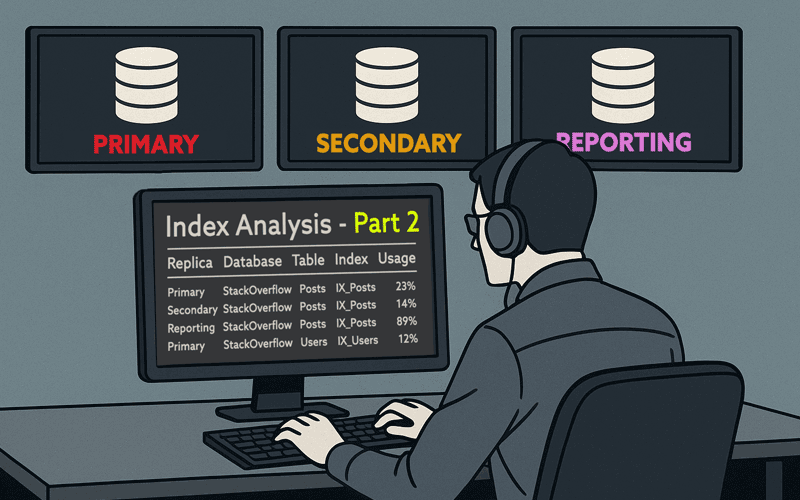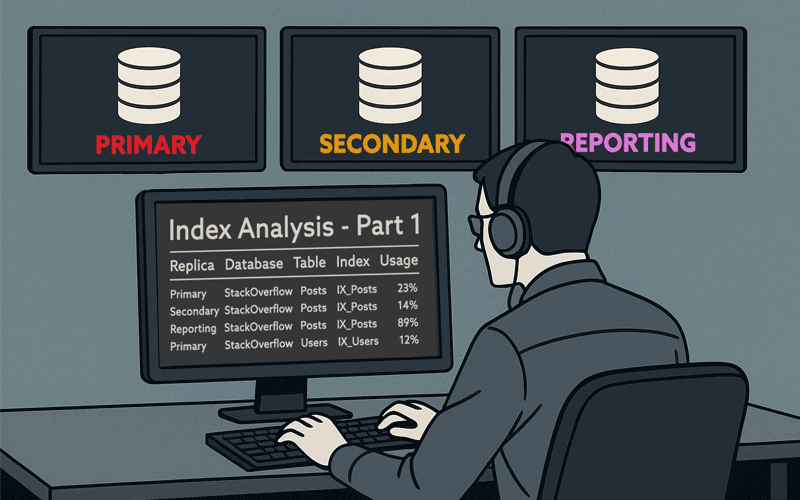The most recent failover of Stack Overflow – a busy, 8TB database – took 12 seconds. Find out how.
SQL Server
In this series on common SQL Server problems, I provide some guidance around the error message "An invalid length was passed to the LEFT or SUBSTRING function…" errors.
I detail issues we experienced (and maybe should have expected) while upgrading to SQL Server 2025.
In this tip, I show a few pagination tricks to let users filter without killing performance.
In this tip, I talk about an approach to achieve constant (O(1)) performance on every page instead of just the early pages. The approach isn't without its trade-offs, but if you're optimizing for runtime performance…
In this ongoing series on common problems in SQL Server, I explain many possible reasons for "Invalid Object Name" errors.
In the past, we've used xp_cmdshell and PowerShell to send Slack messages from the database. In SQL Server 2025, there's (arguably) a better way…
SQL Server 2025 introduced a new way to hit APIs from the engine, but is it better than all the quirky ways we've done this in the past?
In my previous post, I showed how I collect index information across all replicas to get the whole picture. In this follow-up, I add more context.
In this post, I show how I make decisions about unused or redundant indexes with the whole picture: analyzing activity across primary and all secondary replicas.
I recently built a process to create a new filtered index on a schedule to support a UI that only cares about the last 30 days.
I dug a little into one of the new RegEx functions in SQL Server 2025: REGEXP_SPLIT_TO_TABLE.
In this follow-up, I show how we determine all possible point of time restores and identify which backup files to keep in order to meet our recovery objectives.
In this article, I detail some of the things we do to manage backups and retention policies for hundreds of production databases.
I put together a brief list of all the things that can cause "A network-related or instance-specific" error messages, and a few things that can't.
As the SQL Server 2025 public preview hit the streets, I had to test the new backup compression algorithn, ZSTD, on a decently-sized database.
Occasionally, it's fun to talk about our wish lists for SQL Server. In this post, I talk about a few that I came across recently…
I recently had a great conversation with Louis Davidson as part of his "Coffee chat with…" series on Simple Talk.
I show an inline table-valued function to extract values from an integer encoded with days of the week.
I talk about some of the challenges and qualitative factors that influence how you add, remove, and change indexes.
I consolidate many bits of Docker advice that had previously been scattered across several different posts.
In this post, I talk about why it's so important to regularly test that your backups can be restored.
In the last part of the series, I show how I coordinate multiple parallel jobs… and what comes after them.
In part 3 of this series, I dig into some detail about how I further parallelized the work and reduced overall runtime.
In part 2, I show how I take advantage of snake draft order with a couple of real use cases.
In this four-part series, I borrow a concept from fantasy football to solve an optimization problem in a long-running weekly job in SQL Server.
I talk about a technique that can avoid expensive sorting to paginate by large string values.
In this post I talk about how to avoid losing valuable debugging information in the abyss and noise of SQL Server Agent's history.
I put together a few pointers about upgrading SQL Server, including /SkipRules, and avoiding the web installer.
For this month's T-SQL Tuesday, Brent Ozar asks about the last ticket we closed. I came close…
I talk about several things you can do to clean up after yourself and be a good RDP citizen.
If you're planning to roll forward your existing configuration file to SQL Server 2022, read this first.
Azure SQL Database got an update: A new locking model that might finally displace NOLOCK.
2023 was an interesting year for SQLblog.org – I talk about top posts and some changes I made here over the year.
I show how to use metadata to avoid costly reads when retrieving counts, even for a subset of the table.
This month, Kay Sauter encourages us to say thanks to those who helped us this year.
While I've very rarely been jealous of Oracle, 23c added something I really want in SQL Server.
I discuss reasons you might think a data change was successful when it wasn't – or vice-versa.
I talk about the evolution of my thinking on featured images, and how I use generative AI for most post companions these days.
Bit columns can be tricky, and I discuss a few techniques for sanity and performance – including filtered indexes when skew is dramatic.
For this month's T-SQL Tuesday, Steve Jones asks us to talk about problems we've solved using window functions.
UNPIVOT works great when you're populating a single output column, but I talk about how CROSS APPLY can work better in more complex scenarios.
I discuss decisions and trade-offs when migrating Stack Overflow for Teams – first to a new cluster, and then to a new version of SQL Server.
In this tip, I talk about checklists to keep everyone involved in a deployment or migration – regardless of technical acumen – on the same page.
I talk about an inefficient but common use case for DISTINCT: removing extra rows from joins.
Over a decade of posts and videos involving bad habits and best practices in SQL Server.
SQL Server has updates that fix several vulnerabilities, for all modern versions from 2014 SP3 through 2022.
In this tip, I talk about various reasons a query's performance can change over time – even when the application hasn't changed.

















































